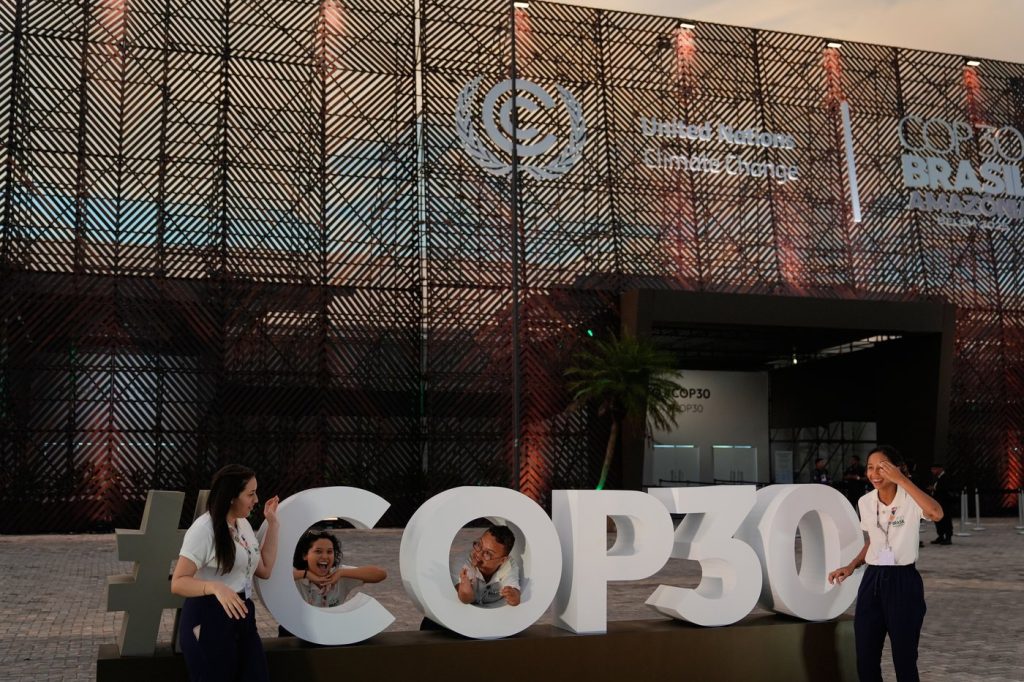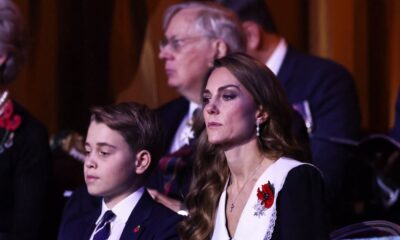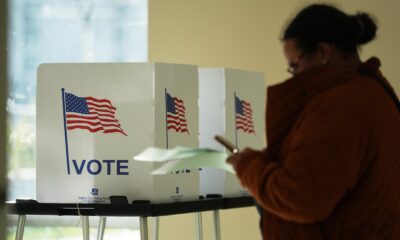World
Global Leaders Urge Swift Climate Action at COP30 in Brazil

U.N. climate negotiations commenced on March 14, 2024, in Belem, Brazil, with a strong emphasis on urgent action and collaboration. Leaders from around the world are convening at COP30, advocating for immediate measures to combat climate change and significantly reduce carbon emissions. André Corrêa do Lago, the president of this year’s conference, highlighted the importance of collective effort, urging negotiators to embrace the Brazilian concept of “mutirão,” which signifies a united group working towards a common goal.
In a letter addressed to negotiators, do Lago stated, “Either we decide to change by choice, together, or we will be imposed change by tragedy.” He asserted the necessity for global unity in addressing climate challenges, underscoring that the time for action is now.
Complicating these discussions is the absence of high-level representatives from the United States, a country that has significantly contributed to global carbon pollution. The U.S. government, under former President Donald Trump, has withdrawn from the Paris Agreement for the second time, stirring concerns among other nations about the future of climate negotiations.
Ilana Seid, the Ambassador of Palau and chair of the Alliance of Small Island States, noted that the geopolitical landscape poses challenges to climate efforts. “The United States withdrawing from the Paris Agreement has really shifted the gravity of the whole negotiating system,” she remarked. Small island nations are particularly vulnerable to climate change, facing rising sea levels that threaten their existence.
Former U.S. Special Envoy for Climate Todd Stern expressed concern over the U.S. stance, indicating that the lack of participation could hinder progress. “It’s a good thing that they are not sending anyone. It wasn’t going to be constructive if they did,” he stated.
The absence of a U.S. delegation was compared by Katharine Hayhoe, chief scientist at The Nature Conservancy, to a potluck dinner where each participant contributes to the meal. “The United States as a country will not be showing up with a dish,” she explained, although she acknowledged that cities, states, and businesses in the U.S. may still play a role in climate action.
In a letter released prior to the conference, Simon Stiell, the U.N. climate chief, highlighted the ongoing effects of climate change. He pointed to recent events such as Hurricane Melissa in the Caribbean and severe typhoons in Southeast Asia as evidence of the urgent need for increased action. Stiell stated that the Paris Agreement is making progress but emphasized that “we must accelerate in the Amazon” and connect climate action to the daily lives of people around the world.
The discussions at COP30 are taking place against a backdrop of rising global temperatures and increasing natural disasters, reinforcing the necessity for nations to act decisively and collaboratively. As negotiations unfold, the eyes of the world remain on leaders to forge a path forward in the battle against climate change.
-

 World4 months ago
World4 months agoScientists Unearth Ancient Antarctic Ice to Unlock Climate Secrets
-

 Politics4 days ago
Politics4 days agoSecwepemc First Nation Seeks Aboriginal Title Over Kamloops Area
-

 Entertainment4 months ago
Entertainment4 months agoTrump and McCormick to Announce $70 Billion Energy Investments
-

 Lifestyle4 months ago
Lifestyle4 months agoTransLink Launches Food Truck Program to Boost Revenue in Vancouver
-

 Science4 months ago
Science4 months agoFour Astronauts Return to Earth After International Space Station Mission
-

 Technology2 months ago
Technology2 months agoApple Notes Enhances Functionality with Markdown Support in macOS 26
-

 Top Stories4 weeks ago
Top Stories4 weeks agoUrgent Update: Fatal Crash on Highway 99 Claims Life of Pitt Meadows Man
-

 Sports4 months ago
Sports4 months agoSearch Underway for Missing Hunter Amid Hokkaido Bear Emergency
-

 Politics3 months ago
Politics3 months agoUkrainian Tennis Star Elina Svitolina Faces Death Threats Online
-

 Politics4 months ago
Politics4 months agoCarney Engages First Nations Leaders at Development Law Summit
-

 Technology4 months ago
Technology4 months agoFrosthaven Launches Early Access on July 31, 2025
-

 Top Stories2 weeks ago
Top Stories2 weeks agoFamily Remembers Beverley Rowbotham 25 Years After Murder





















